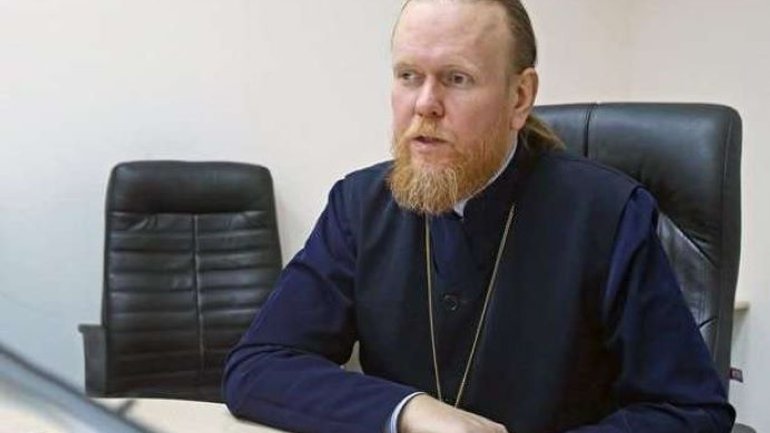Metropolitan Yevstratiy (Zorya): Moscow Patriarchate kept Ukrainian souls in captivity for 330 Years

Metropolitan Evstratiy, a hierarch of the Orthodox Church of Ukraine and deputy head of the Department of External Church Relations of the OCU, shared these thoughts in a conversation with Espresso.
He noted that artificial obstacles impeding communities from leaving the Moscow Patriarchate and joining the OCU were eliminated only a year ago. Actions by local authorities often slowed down the transitions of church communities.
"Previously, we constantly stumbled upon artificial obstacles created by biased representatives of the authorities who personally supported the Moscow Patriarchate. They used their positions to create these artificial barriers. It was only after the decision of the National Security and Defense Council (NSDC), which was made last year, and after the official statement and declaration of the state's position, that these artificial obstacles began to disappear," explained Yevstratiy (Zorya).
Additionally, according to the Metropolitan, sociology has documented a decrease in the number of supporters of the Moscow Patriarchate by almost three-quarters since the start of the Russian invasion. Out of those who supported the Moscow Patriarchate in February 2022, only one in four continues to do so.
"It is much easier for people to self-identify because it does not require legal procedures. However, a change of jurisdiction for the entire community requires a lengthy legal procedure. The process, which largely occurred in people's self-awareness in the spring of 2022, gradually catches up with the process of self-identification through legal changes taking place in specific communities," added the bishop.
There are still many who, despite all circumstances and changes, steadfastly support the Russian-affiliated Church. Representatives of the Moscow Patriarchate continue to bury those killed by Russian occupiers, and icons of Russian tsars remain in Ukrainian temples. Yevstratiy (Zorya) believes this is the consequence of the long-term indoctrination of the ideology of the Russian Church in Ukraine.
"For 330 years, the Moscow Patriarchate worked to keep Ukrainian souls in captivity. What was built will not disappear in a year or even in ten years.
The transition process should happen naturally. It cannot be expedited. How can you change someone's worldview when the person themselves does not desire such a change? It's not about solving technical issues. It's about changing human consciousness. It is changing, unfortunately, due to the external tragic circumstances of war. Although changes are occurring gradually, they are irreversible," emphasized the clergyman.
Yevstratiy (Zorya) believes that the changes in legislation passed by the Ukrainian Parliament in the first reading can and should be adopted.
"Any religious organizations in Ukraine should be not allowed to have administrative ties or be in subordination to religious centers in the aggressor country. This is not about freedom of religion and beliefs. It concerns administrative structure. Religious organizations in Ukraine cannot be subordinate to religious structures in Russia, as this is one of the instruments of Russian hybrid aggression against Ukraine. They are used by the Russian government as an integral part as a means to spread aggression against Ukraine. Prohibiting such ties is a matter of national security. Obviously, the adoption of such a law will prompt many religious communities to define themselves."
He noted that there are sixty different denominations here, so there will always be a certain group that supports Moscow.
"Religious unity with Moscow will weigh more. This group will be relatively small and will not affect social life, existing primarily for its followers. They do not exert any practical influence on social life and, therefore, cannot be considered an instrument of interest. When a law is passed that prohibits administrative subordination, they will have a purely virtual internal sense that they have unity with the Russian Church, but they will not have the right to be legally subordinate to that Church. Limiting Russia's ability to use the religious community for its interests is both the duty of the state and society. I believe that in the foreseeable future, the majority of those who remain in the Moscow Patriarchate will unite with the Orthodox Church of Ukraine, and a smaller portion will remain a quasi-sect," concluded Zorya.









